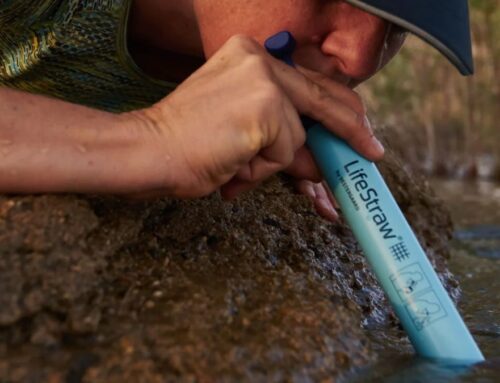Delaware governor considers cutting restrictions on recreational pot store sites
July 9, 2025
From Philly and the Pa. suburbs to South Jersey and Delaware, what would you like WHYY News to cover? Let us know!
Delaware Gov. Matt Meyer could make it easier for Delawareans throughout the state to walk into a nearby store and buy recreational cannabis in the coming months with a flick of his pen.
Meyer is weighing whether to add his signature to legislation that would set state standards for where recreational marijuana stores could be located within the state’s three counties, overruling restrictive local ordinances. Opponents of the bill say it’s the role of local governments to make zoning decisions.
SB 75, sponsored by state Sen. Trey Paradee, D-Dover, would ease local government zoning restrictions on recreational cannabis facilities after some areas banned retail pot stores completely while others enacted strict limitations on site locations.
Meyer could sign the legislation, veto it or allow it to become law without his signature. He said Tuesday he’s been hearing from stakeholders, including county officials and cannabis advocates, over concerns about the issue of local control and kick-starting the legal weed industry, the opening of which has already been delayed by several months.
New Castle County Councilman Dave Carter said the bill is an unfunded mandate from state lawmakers.
“They like to pass legislation they think is popular,” he said. “It gets them votes, but they don’t like to pay for it.”
What is the state of Delaware cannabis legalization?
Lawmakers legalized recreational cannabis in 2023, creating a system for licensing cultivators, manufacturers, retailers and testing laboratories. The legislation left it to local governments to dictate where facilities could operate. The bill also created a pool of social equity licenses where people who have been negatively affected by past marijuana crime enforcement could enter the market with lower barriers to access.
Originally scheduled to open last December, Delaware Marijuana Commissioner Joshua Sanderlin recently announced the legal recreational market will open next month through medical dispensaries with conversion licenses. The state has awarded 125 adult-use recreational market licenses through a lottery system, with 30 retail stores planned throughout the state — 14 in New Castle County, 10 in Sussex County and six in Kent County.
Dispensaries with a medical marijuana conversion license can open Aug. 1. Seven conversion licenses were given to medical dispensaries so that they could sell both medical and recreational cannabis out of their existing facilities.
Delaware has also authorized 30 recreational licenses for retail sales, which are still in the process of being approved and issued.
But weed entrepreneurs have complained there’s nowhere to set up shop because county ordinances have boxed them out of every likely feasible location.
Social equity license holder Tracee Southerland has two testing facility licenses, one in New Castle County and one in Sussex County. Sussex County requires any site to be located outside of 3 miles of any municipality, church, school or substance abuse treatment center. New Castle has set a 1,000-foot buffer.
Paradee’s bill would allow retail cannabis outlets in commercial- or industrial-zoned areas as long as they are not within a half-mile of another recreational cannabis store or within 500 feet of places such as schools, day cares, residential substance abuse treatment facilities and parks.
“I really believe a 500-foot buffer is what’s fair,” Southerland said. “It’s what’s right, it’s what would give the industry a chance at success.”
Whitecap Cannabis founder Patrick Galloway has one of the 30 recreational licenses. He received his cultivation license this week, so he can start growing pot. Galloway said because Sussex County has established a de facto ban on retail establishments operating inside its borders, unless the legislation becomes law, there will be no stores in Sussex County to sell his product.
“A big part of our marketing plan is to talk about how we’re from Delaware and we’re trying to sell to the tourist market,” he said. “We want to create a lifestyle brand. So it’s really important that lifestyle brand is around the lifestyle, which is the beaches.”
One stakeholder Meyer has heard from since the General Assembly passed the bill is New Castle County Councilmember Janet Kilpatrick, chair of the Land Use Committee. She said the county made the setbacks for cannabis shops the same as liquor stores. She said if the state wants to second-guess their decisions, they should take over all of the functions of issuing zoning decisions.
“We either do land use or we don’t do land use,” she said. “If the state wants to take it over, they need to take over the whole process, which includes people that come and want a variance, because they’re not quite at that 500 feet. Either that or it stays with us and we look at it as 1,000 feet.”
From cannabis to offshore wind
Local control was a huge issue in the General Assembly this year. That’s in large part because of controversial legislation that reversed a Sussex County Council decision denying a permit for a substation at the Indian River Power Plant for an offshore wind energy project. After state Senate Republicans, opposed to the state’s override of a local land use decision, exercised their leverage to hold the capital budget hostage, a compromise was reached that extended the effective date of the bill.
Meyer said in a Tuesday news conference in Wilmington that he signed the offshore wind bill because of the statewide implications, but was taking his time considering the marijuana ordinance bill because of the important role local governments play in issuing zoning decisions.
“Sussex County, like New Castle County, like Kent County, like a lot of the municipalities, have land use and license and inspection divisions, and if the state is just going to overrule decisions they don’t like, then, what are these divisions for?” he asked. “So I am sympathetic to that.”
Meyer could allow opening up sites for retail pot stores while appearing to support local government control by allowing the bill to become law without his signature. It would become law without any action from Meyer after 10 days.
Paradee said in a text to WHYY News that he was confident his legislation would become law, but not necessarily with the governor’s signature. Galloway said he expects the bill will become law without being signed.
Meyer downplayed that method Tuesday by saying it’s always an option. The bill has not yet been sent to the governor. Once that happens, the 10-day clock starts. The clock begins ticking at 12:01 a.m. the following day the bill is presented to his office. The time period excludes Sundays but includes holidays.
This story was supported by a statehouse coverage grant from the Corporation for Public Broadcasting.

Get daily updates from WHYY News!
WHYY is your source for fact-based, in-depth journalism and information. As a nonprofit organization, we rely on financial support from readers like you. Please give today.
Search
RECENT PRESS RELEASES
Related Post









